Whenever a popular online app announces a change to its fees, or in the services it provides for those fees, you’re going to get a reaction from its subscribers — especially the long-term ones. The latest app to cause this type of dismay is Otter, a recording and transcription service that recently announced downgrades of the services it provides on two of its plans and raised the price on a monthly plan.
For free users, it means that they will no longer have access to all their past transcriptions — only the last 25. For paying customers who are on Otter’s Pro plan, the change will be nearly as (or more) drastic: they will be downgraded from a monthly allowance of 6,000 minutes of transcribed audio to 1,200 minutes and from a maximum of four hours of audio per conversation to 90 minutes.
What this means is that, for example, a reporter who uses Otter to track interviews and was able to do up to 100 one-hour interviews a month is now limited to 20. Or somebody who uses Otter to record doctor visits or conversations with older relatives will have to remember to start a new recording after 90 minutes is up.
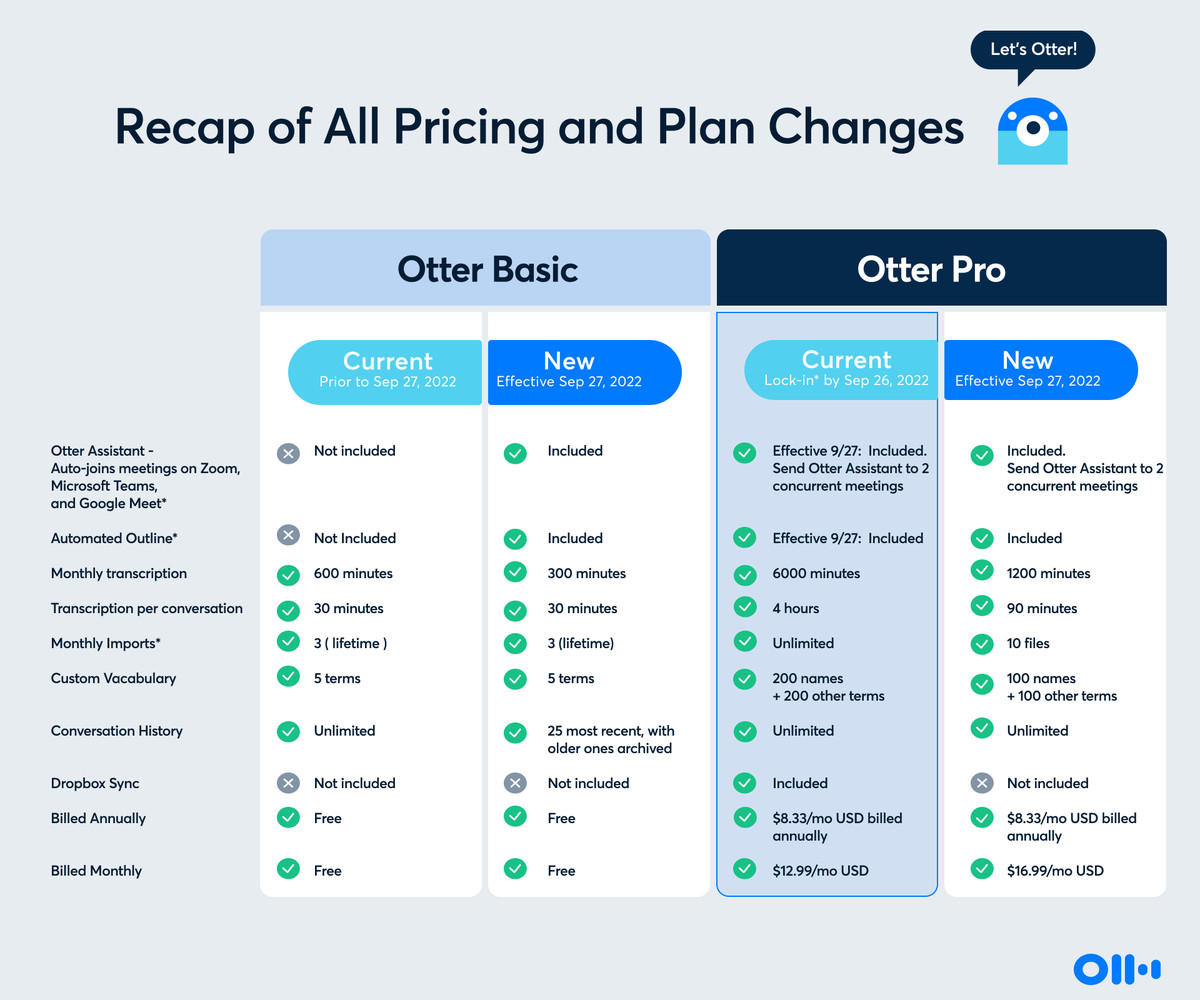
To Otter’s credit, the company is trying to ameliorate the pain to its paying customers — somewhat. While it is raising its monthly fee from $12.99 to $16.99, its annual fee of $99.96 is not changing. And if you subscribe to the annual Pro plan by September 22nd (or are already a subscriber), then the next time you automatically upgrade, you will retain the older features for one more year.
And after that? Well, presumably, you will either put up with the decreased feature set, pay for Otter’s Business plan ($240 annually), or find some other service to use. But before we describe some of the alternatives out there, a few notes.
First, there are actually two types of transcription services: one that uses an AI engine and the other that uses human transcribers. While using AI to interpret and transcribe audio has improved vastly over the past few years, it is still less accurate — but considerably less expensive — than transcription by people. For this article, I’m looking at services that use AI transcription, although some of them offer both.
The quality of transcription supplied by these apps can vary widely — not only depending on the AI engine the app is using but also on your audio file. If there are a lot of voices talking at once, if there is a lot of background noise, if your speakers have accents unfamiliar to the AI — those factors can all serve to degrade the accuracy of the transcription. So a good idea is to try out a transcription service with a typical file to see how well it performs.
And take a close look at which app could be most cost-effective for you. If you only need to upload an occasional file, it could be best to go with either a free version or one of the pay-as-you-go services. If you do regular uploads, then a monthly or annual subscription may work better for you.
Finally, if you are an Otter subscriber and transcriptions are an important part of your personal, creative, or professional life, it’s worth it to figure out whether one of these works better for you or you should just stick with Otter, at least for now.
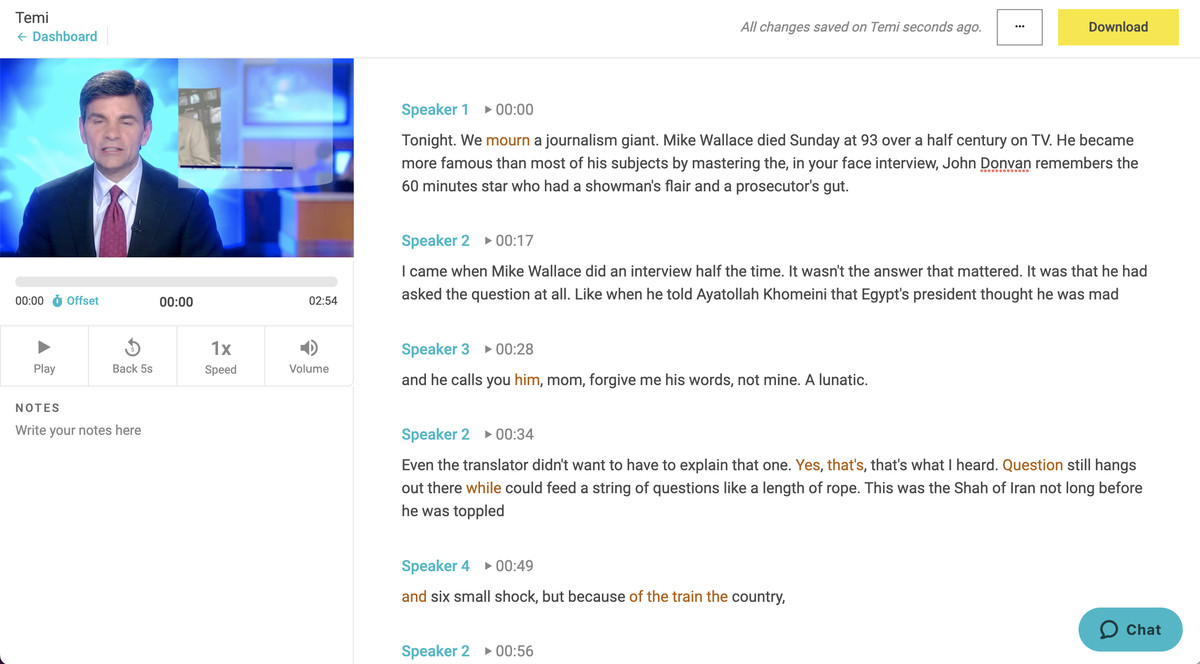
Temi is a basic transcription service that offers such features as the ability to review and edit your transcriptions, slow down the replay, and export your files into text (Microsoft Word, PDF) or closed caption (SRT, VTT) files. Its mobile apps for Android and iOS allow you to record audio; you can then choose to transcribe it for a straightforward 25 cents per audio minute or upload your own recordings for the same price. New users get the first 45 minutes free. (It is also folded into Rev, a service that offers human-operated transcriptions and other services.)
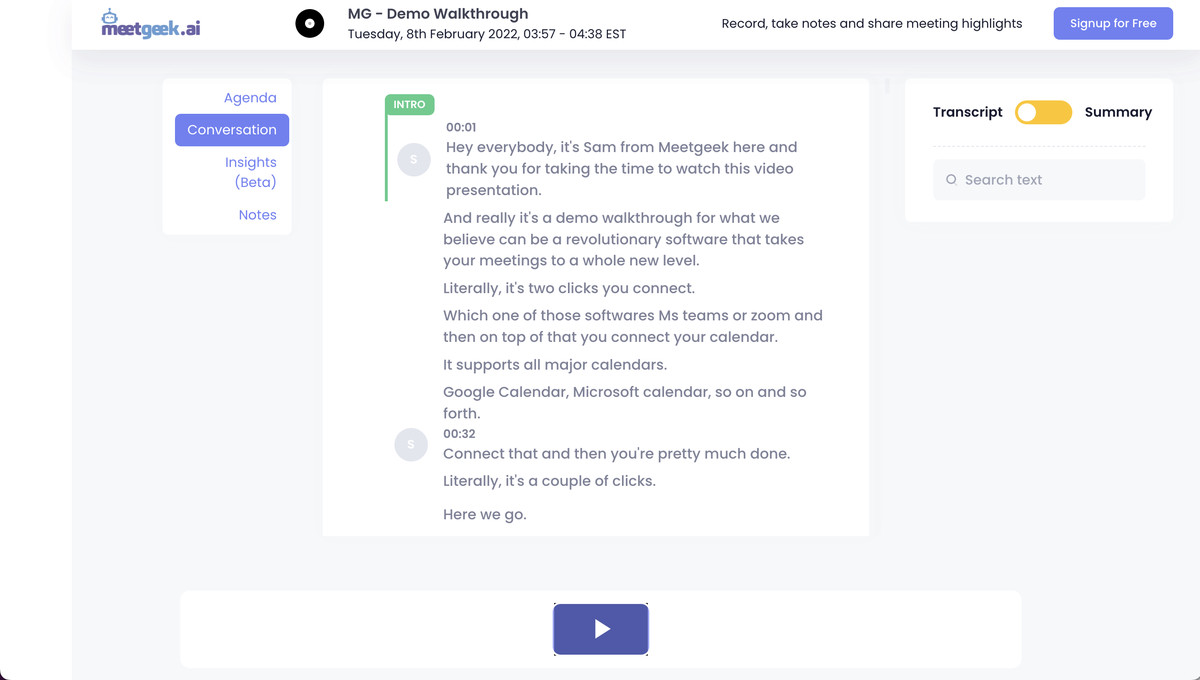
MeetGeek calls itself “an AI meeting assistant.” In other words, its concentration is on transcribing meetings (although it can be used for other audio). It has a free version that lets you create transcripts from audio and video sources — you can record five hours of audio a month and retain one month’s worth. For $19 / month or $180 / year, a Pro version gives you 20 hours of audio a month and three months of transcript retention. There are also Business and Enterprise versions. New users get a 14-day trial of the Business plan, which costs $39 a month, or $372 a year, and gets you 40 hours of audio a month and six months of recording retention.
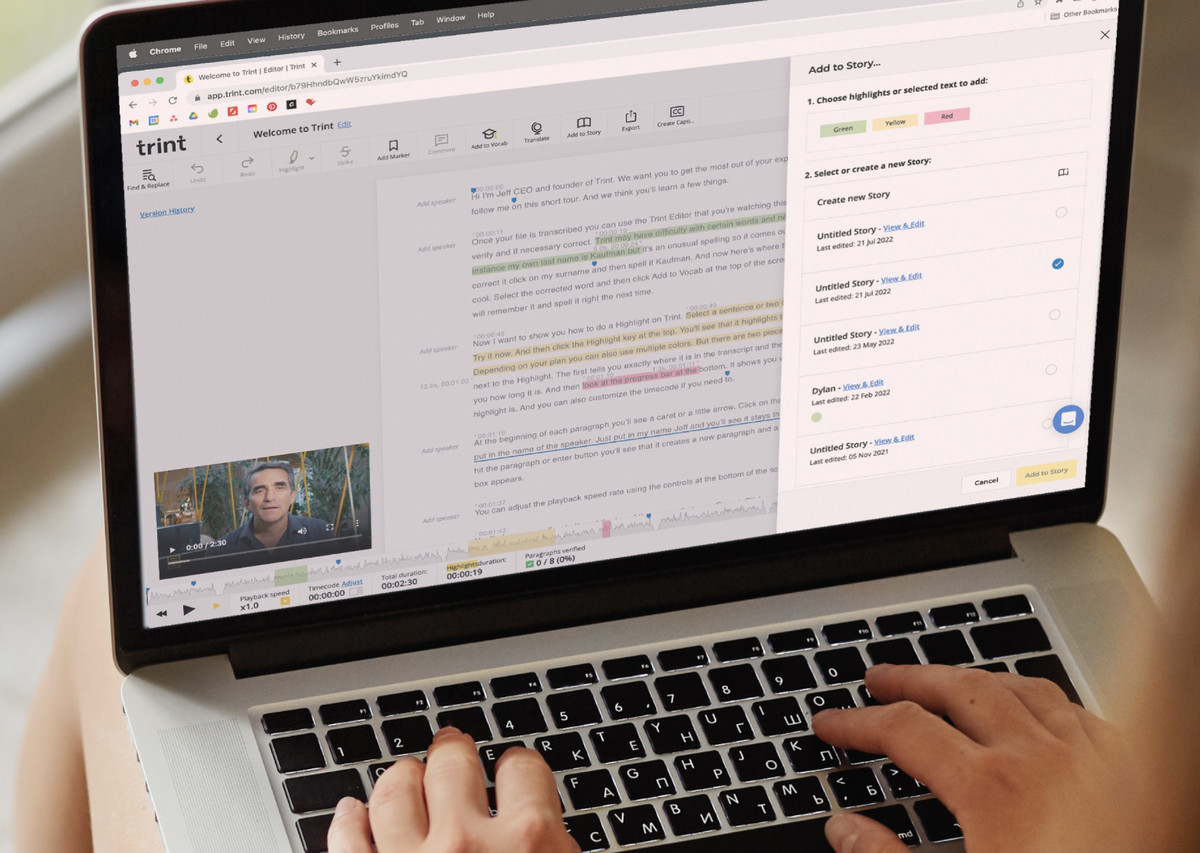
Trint’s website makes it obvious that it’s pushing its AI transcription services to creative users who will take the transcript material and “effortlessly shape transcripts into high-impact content for blogs, social media, podcasts and more.” According to Trint, it can transcribe in 32 different languages and translate finished transcriptions in 54 languages. The Starter plan ($60 / month or $576 / year) lets you transcribe up to seven files per month, capture audio from Zoom and its iPhone app (it doesn’t have an Android app), edit and share transcripts, and translate text to 54 languages. The Advanced plan ($70 / month or $720 / year) adds unlimited transcription and lets up to 15 users edit simultaneously. A seven-day free trial lets you sample the Advanced plan.
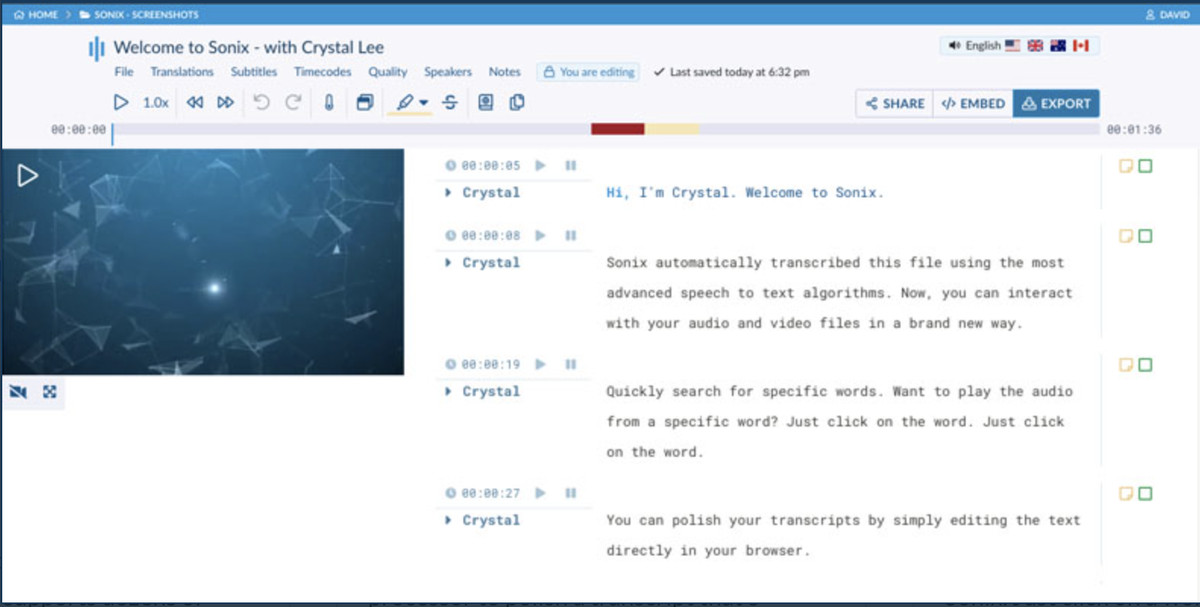
Sonix offers automated translations in 35 languages. It includes the usual ability to edit its transcripts, a word-by-word timestamp, and the ability to upload transcripts from other programs and stitch them to new ones. You can export your transcripts in DOCX, TXT, and PDF and export subtitles in SRT and VTT formats. It starts with a pay-as-you-go Standard plan that costs $10 an audio hour (prorated to the nearest minute), and you get 10GB of file storage for 90 days. There is also a Premium subscription plan ($5 per audio hour plus $22 / month or $198 / year) that adds a number of features and 50GB of storage. New users get 30 free minutes of transcription.
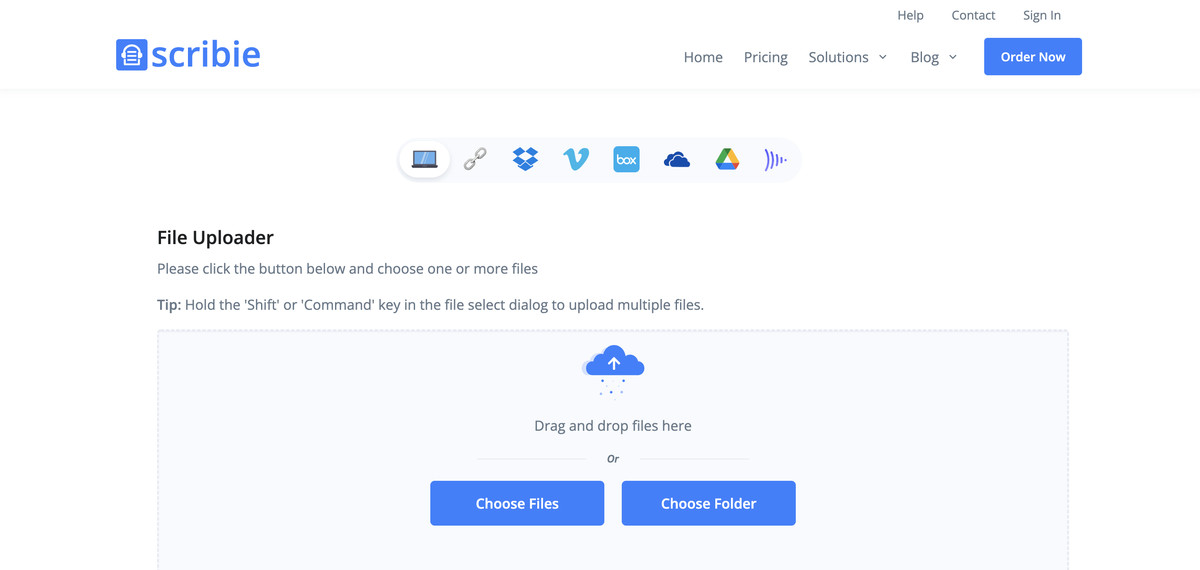
Scribie mostly offers manually transcribed services, but it does have simple AI-powered transcription as well for 10 cents a word with a minimum of $1 per file. For that, you get an online editor, speaker tracking, and the ability to download it as a Word document or a SRT / VTT subtitle file.
https://www.theverge.com/23316220/transcription-ai-otter-temi-how-to

